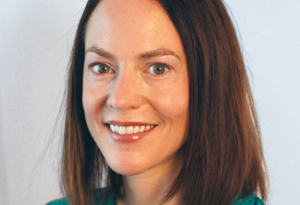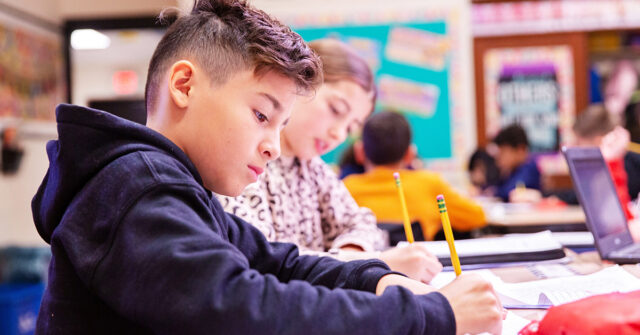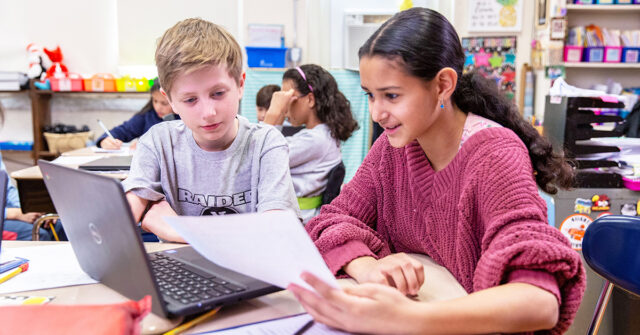
by Anna Gratz Cockerille
For the past several years, the STEM (Science, Technology, Engineering, and Math) subjects have stepped into the spotlight. And for good reason. James Brown, the executive director of the STEM Education Coalition in Washington, D.C., has said, "The future of the economy is in STEM. That’s where the jobs of tomorrow will be.” According to the website of The STEM Education Coalition, "Data from the U.S. Bureau of Labor Statistics (BLS) support [Brown's] assertion. Employment in occupations related to STEM—science, technology, engineering, and mathematics—is projected to grow to more than 9 million between 2012 and 2022."
But a focus on literacy and a focus on STEM need not be mutually exclusive. Education researchers such as Colleen Cruz, author of The Unstoppable Writing Teacher, A Quick Guide to Helping Struggling Writers, and Independent Writing, have been at the forefront of considering ways balanced literacy methods such as reading and writing workshop can support STEM learning. Workshop practices, such as a teacher convening students for brief, targeted instruction, students gathering their materials then spending the bulk of their class time working independently, and teachers circulating and offering tips while students work, are not so different from practices one might see in a science lab.
Further, inspired in part by many global standards' emphasis on nonfiction reading and expository writing, many reading and writing workshop curricula, such as the Units of Study by Lucy Calkins and colleagues, now give these genres equal weight to fiction reading and narrative writing. In reading and writing workshop, students learn the crucial literacy skills they will need to be able to comprehend and present information in any subject area, including STEM. Here is a short, hardly complete list of some of the reading and writing workshop instruction that can support students' learning in STEM subjects:
Nonfiction Reading
- Reading a broad range of texts on a topic to bolster understanding of complicated material
- Strategies for determining central ideas of texts
- Strategies for considering how information in a text is angled to support an author's point of view
- Close reading strategies to read more complicated material, such as scientific articles or math problems
- Teaching others about a topic to help solidify learning
- Note-taking in ways that match text structures
Information and Argument Writing
- Solidifying understanding about technical topics through different kinds of writing, such as journaling, essays, and research reports
- Compiling information from a variety of sources
- Organizing information in logical ways
- Considering how to angle and interpret information to support ideas the writer is growing
- Weighing evidence and discussing multiples sides of an issue
- Presenting information in a variety of formats, including digitally
Literacy educators can learn a few things from STEM practices, as well. When discussing The Reading and Writing Project's current research on STEM, Colleen Cruz wrote, "We’re also looking closely at some of the STEM practices, such as makerspaces and Genius Hours to see how we can bring some of that mindset into reading and writing workshop."
Whether your primary focus is STEM or literacy, don't miss this week's @TCRWP Twitter Chat. Colleen Cruz will be on hand to facilitate. Bring your questions, your tips, your examples and your plans. Together, we can push our thinking just a bit further on this exciting new terrain.
♦ ♦ ♦ ♦
Each Wednesday night at 7:30pm eastern, The Teacher's College Reading and Writing Project hosts a Twitter chat using the hashtag #TCRWP. This week Join @Colleen_Cruz to chat about STEM and the Workshop.
♦ ♦ ♦ ♦
Not on Twitter? Take Heinemann’s free Twitter for Educators course here.
 Anna Gratz Cockerille, Coauthor of Bringing History to Life (Grade 4) in the Units of Study for Teaching Writing Series.
Anna Gratz Cockerille, Coauthor of Bringing History to Life (Grade 4) in the Units of Study for Teaching Writing Series.
Anna was a teacher and a literacy coach in New York City and in Sydney, Australia, and later became a Staff Developer and Writer at TCRWP. She served as an adjunct instructor in the Literacy Specialist Program at Teachers College, and taught at several TCRWP institutes, including the content literacy institute, where she helped participants bring strong literacy instruction into social studies classrooms. Anna also has been a researcher for Lucy Calkins, contributing especially to Pathways to the Common Core: Accelerating Achievement (Heinemann 2012), and Navigating Nonfiction in the Units of Study for Teaching Reading, Grades 3–5 series (Heinemann 2010). Most recently, Anna served as an editor for the Units of Study for Teaching Reading, K–5 series.


